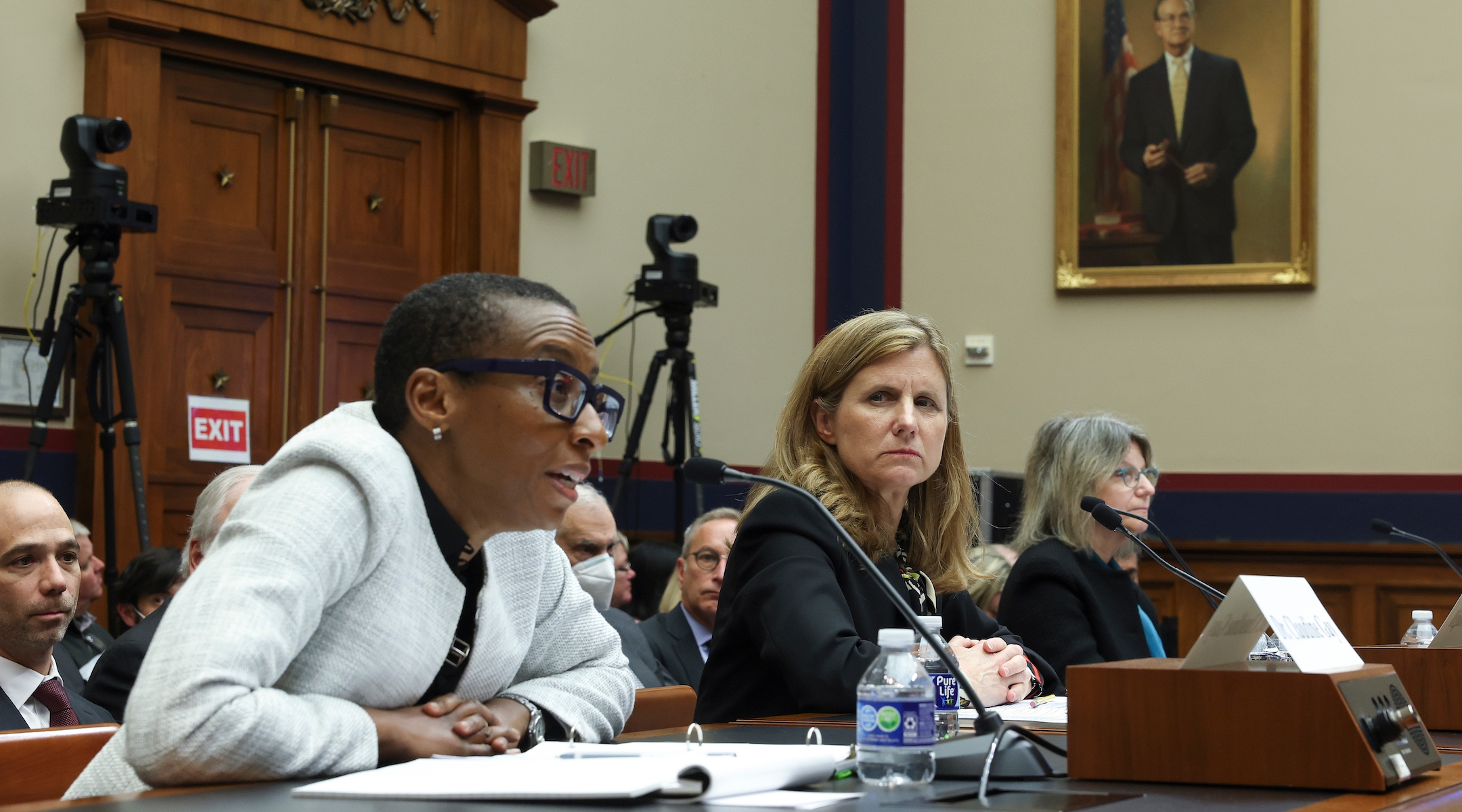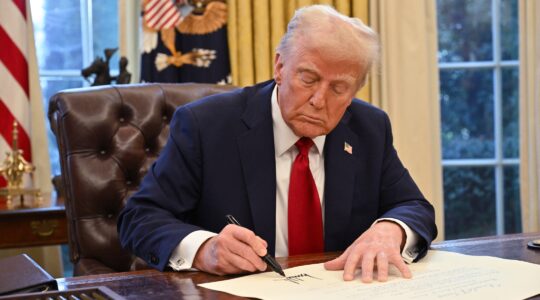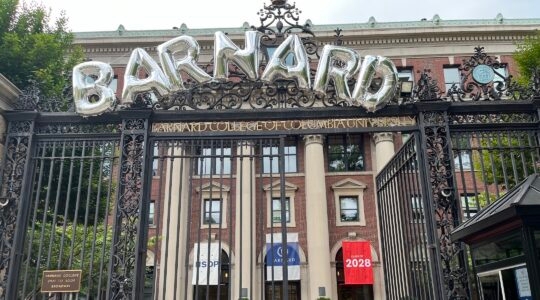(JTA) — The president of Harvard University told the student newspaper that she was sorry for causing pain with her testimony during Tuesday’s congressional hearing in which multiple college leaders said their schools’ codes of conduct would not necessarily prohibit calls for genocide of Jews.
“I am sorry,” Claudine Gay said in an interview with The Crimson. “Words matter.” She added, “When words amplify distress and pain, I don’t know how you could feel anything but regret.”
She suggested that she had been thrown by the grilling that she and the presidents of the University of Pennsylvania and the Massachusetts Institute of Technology were facing over their handling of antisemitism on their campuses.
“I got caught up in what had become at that point, an extended, combative exchange about policies and procedures,” Gay told the student newspaper. “What I should have had the presence of mind to do in that moment was return to my guiding truth, which is that calls for violence against our Jewish community — threats to our Jewish students — have no place at Harvard, and will never go unchallenged.”
Meanwhile, a major donor says he is asking for his money back from Penn after the hearing, adding to pressure that its president, Liz Magill, is facing to resign.
Ross Stevens, CEO of the financial services firm Stone Ridge Asset Management, told the university in a letter from his attorneys Thursday that he wanted to withdraw approximately $100 million from a gift made in 2019.
“Mr. Stevens and Stone Ridge are appalled by the University’s stance on antisemitism on campus,” says the letter, which was first reported by Axios. “Its permissive approach to hate speech calling for violence against Jews and laissez faire attitude toward harassment and discrimination against Jewish students would violate any policies of rules that prohibit harassment and discrimination based on religion, including those of Stone Ridge.”
The letter adds to mounting pressure on Penn president Liz Magill to resign. Pennsylvania Gov. Josh Shapiro, a Jewish Democrat, called on the private university’s board to convene to make a “determination” about her leadership following the hearing, which also drew criticism from the White House.
The letter indicates that Stevens could decide not to pull his donation — but says that would happen only after a meeting satisfying his concerns that takes place “if, and when, there is a new University President in place.” It concludes, “Until then, there can be no meaningful discussion about remedying the University’s ongoing failure to honor is obligations.”
JTA has documented Jewish history in real-time for over a century. Keep our journalism strong by joining us in supporting independent, award-winning reporting.






